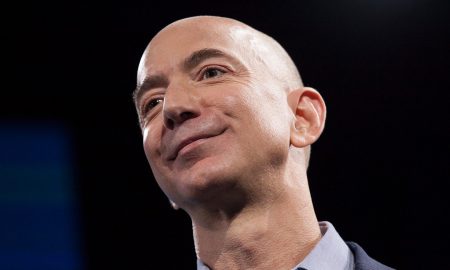
Why Videos Are Not Going Viral on YouTube Like They Used To

When it comes to online video, YouTube is without any doubt, the most important player in the business. With over 1 billion registered users, it has the biggest share out of all other video platforms. However, over the last few years, this is starting to change. In November 2015, 500 hours of video content were uploaded to YouTube every single minute! This shouldn’t be surprising, as running a YouTube channel is commonly considered a serious aspect of any business. But YouTube is far from being a perfect company and community.
The truth is, videos are not going viral on YouTube like they used to. We’ve been hearing about social media platforms and how they are becoming serious competition for YouTube. Take Facebook for example, which reported 8 million unique video views on the platform every single day in late 2015. And this number is predicted to only grow bigger in the future. Is the rise of the social video the reason why YouTube is not as mainstream as it once was? Let’s find out!
Facebook Video vs. YouTube: Which Generates More Views?
Facebook users love watching videos and they are hungry for more video content. Did you know that on August 2014, Facebook passed YouTube in desktop video views? This was one of the first signs that social video is going to explode. From then, the YouTube vs. Facebook debate is getting to be a very sensitive subject – starting with what counts as a ‘view’. There are many different opinions about Facebook’s definition of a “video view.” The social network counts a video as viewed if someone only watched for three seconds or more. And with autoplay enabled by default, many people on the platform are not even watching the videos that play once you load your news feed. Yet Facebook counts all this as ‘views’. So if you’re surprised at how could you possibly get 8 billion video views in one day, this is something to think about.
YouTube, on the other hand, is the second-biggest search engine in the world, right after Google. That’s why YouTube is a must if you’re looking to increase your organic outreach via the search. It also has an autoplay feature that’s been active on desktop devices lately. This recommends a relevant video to be automatically played once the current video finishes. But maybe the most important difference here is that YouTube registers a ‘view’ if a video has been played for approximately 30 seconds.
The sudden rise of social video is part of the reason why YouTube videos are not getting as much attention as they used to back in the day. The question remains: How do you make a video go viral? It’s simple, put it on Facebook! Good videos on Facebook are likely to get hundreds of millions of views and tons of likes, shares, and comments – which are great engagement indicators that represent the viral effect. Businesses can use the impact of viral marketing to grow their outreach and promote their services and products.
What’s wrong with YouTube?
Running a viral marketing campaign on YouTube is still a thing. There are many inventive ways to create viral videos on this platform. You’re seeing these types of videos every day! But here comes the question that many people have asked: What is wrong with YouTube? Well, ever since Google acquired YouTube in 2006, there have been some changes that registered users and viewers didn’t like at all. Without any doubt, these are the things that eventually led other companies to get a part of the online video business. Here are few things of the changes that contributed:
YouTube Handles Copyright Laws and Fair Use Badly
This is a serious concern for many people that are depending on YouTube because it is their primary job. Copyright is not big news, but videos on YouTube get stolen a lot! Because of this gap in the system, many YouTubers need to be on the lookout for people who are stealing their content instead of dedicating their time to video production. Basically, people need to report a copyright infringement, get 3rd party claims and go deep into procedures that take time and effort when they run into stolen video content. But how does this affect companies that want to run campaigns on YouTube? This can reduce the effects of viral marketing – especially if YouTube doesn’t go a step further to protect its users from copyright infringement.
Forced Google+ Integration
Google’s decision to integrate YouTube with Google+ and force users to create Google+ accounts in order to use the service had very, very negative feedback. And Google did that for a reason to promote their social networking site and compete with Facebook. Was this good for their publicity? Was it a move in the right direction for YouTube? You can decide for yourself.
More in Business & Investments
-
`
The Sky’s the Limit: Qantas Aims for Ultra-Long-Haul Records
Long-haul flights are making a grand return, signaling the optimism among airlines that international travel is on the rebound post the...
December 2, 2023 -
`
WWE SmackDown to Make a Comeback on USA Network in 2024
In a surprising twist, WWE’s Friday night staple, “SmackDown,” is bidding farewell to Fox and heading back to its old stomping...
November 24, 2023 -
`
Why Women Face Higher Out-of-Pocket Health Expenses
In healthcare, disparities persist, and a recent report from Deloitte underscores a significant financial gap between working women and men in...
November 18, 2023 -
`
Elon Musk vs Bill Gates: The Clash of Titans
In the realm of the world’s wealthiest individuals, a simmering rivalry has been captivating public attention. It’s not a clash of...
November 7, 2023 -
`
The Power Of Disconnecting
In our digitally driven age, where smartphones, tablets, and laptops have become extensions of ourselves, disconnecting might seem daunting. However, the...
October 31, 2023 -
`
JCPenney’s Bankruptcy: The End of an Era
JCPenney filed for bankruptcy in a move echoing the struggles of many retailers in the wake of the COVID-19 pandemic. This...
October 26, 2023 -
`
Reasons Why You Need a Financial Plan
Financial planning is not just for the wealthy or those nearing retirement. It’s a crucial tool for anyone seeking financial security...
October 19, 2023 -
`
How Brad Pitt Spends His Millions All Over the World
Brad Pitt, the charismatic Hollywood superstar, has left an indelible mark on the silver screen and made an impact in the...
October 10, 2023 -
`
Gen Z’s Posh Palate: The Unexpected Rise of Caviar Culture
Amid the backdrop of a digital era buzzing with viral dances, e-sports, and niche memes, there emerges a peculiar plot twist:...
October 7, 2023

















You must be logged in to post a comment Login